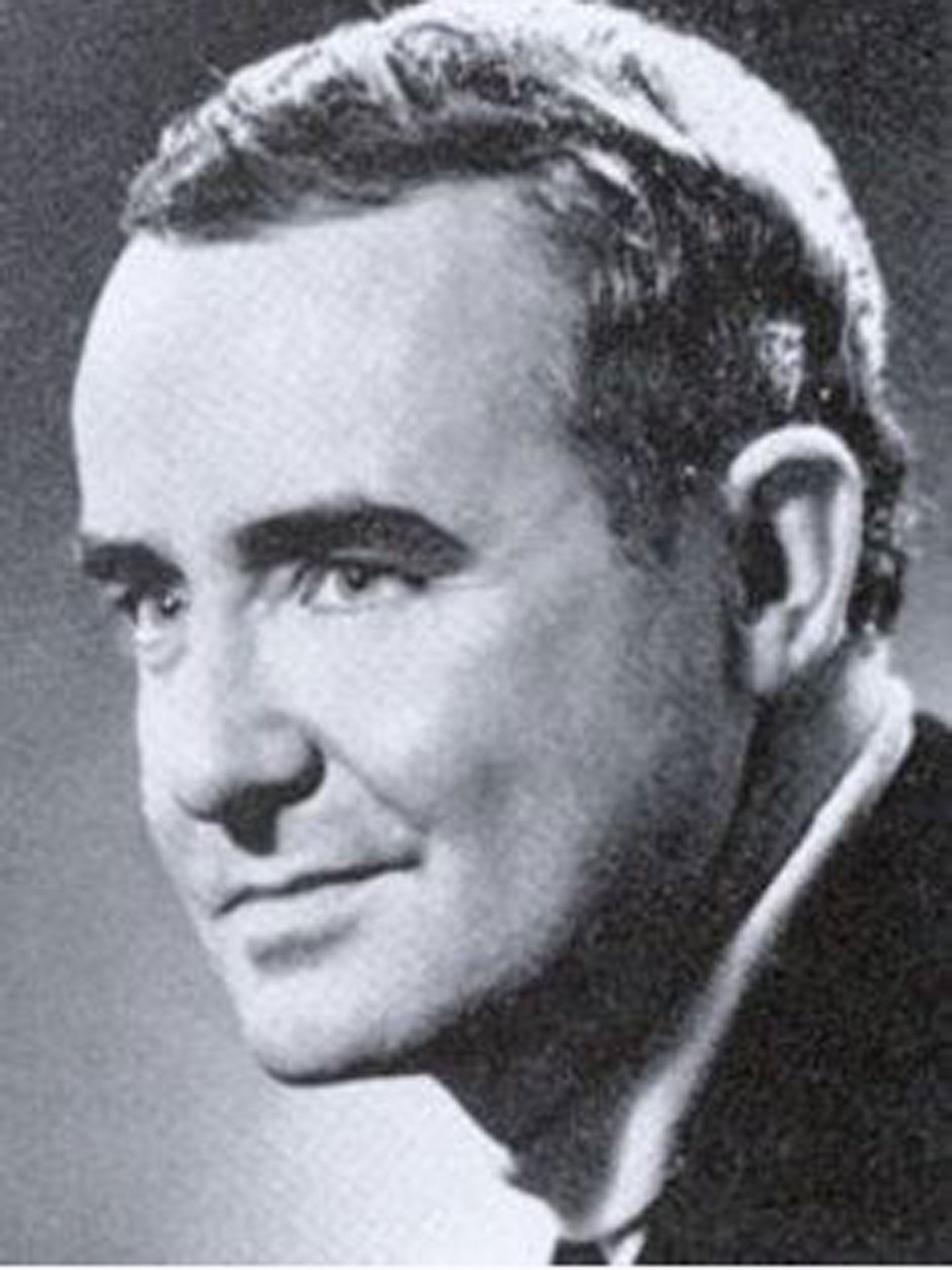Thomas Hemsley: Baritone and inspirational singing teacher
His ‘Singing and Imagination’ was described as ‘one of the best books on singing in modern times’

Your support helps us to tell the story
From reproductive rights to climate change to Big Tech, The Independent is on the ground when the story is developing. Whether it's investigating the financials of Elon Musk's pro-Trump PAC or producing our latest documentary, 'The A Word', which shines a light on the American women fighting for reproductive rights, we know how important it is to parse out the facts from the messaging.
At such a critical moment in US history, we need reporters on the ground. Your donation allows us to keep sending journalists to speak to both sides of the story.
The Independent is trusted by Americans across the entire political spectrum. And unlike many other quality news outlets, we choose not to lock Americans out of our reporting and analysis with paywalls. We believe quality journalism should be available to everyone, paid for by those who can afford it.
Your support makes all the difference.In 1951 Bernard Miles opened the first Mermaid Theatre – in the garden of his St John’s Wood home – with performances of Purcell’s opera Dido and Aeneas. The title roles were sung by the great Kirsten Flagstad (then aged 56) as Dido and the 24-year-old baritone Thomas Hemsley as Aeneas. It was his stage debut, commended for its “heroic dignity”, “noble tone and clear enunciation”.
Indeed, these were characteristics of Hemsley’s art which, 47 years later, he was to expound in his book Singing and Imagination, described by Alan Blyth as “one of the best (if not the best) books about singing to be written in modern times”. It was Hemsley’s belief that the basic principles of good singing are very few and simple, but that their application is what is important, using imagination, feelings and intuition: “singing is not voice, but modification of voice”. Dame Janet Baker, with whom he performed on many occasions, writes of the book’s “extraordinary wisdom and truth”.
Tom Hemsley was born at Coalville, Leicestershire, and graduated in Natural Sciences from Brasenose College, Oxford. After private music studies in London and Cologne his first professional singing appointment was as a vicar-choral at St Paul’s Cathedral, the year before he made his Mermaid debut. He did not stay long; in 1951 he sang the role of Death in Gustav Holst’s one-act chamber opera Savitri, conducted by Imogen Holst for the embryonic Chelsea Opera Group. In 1966 it was recorded, with Janet Baker and Robert Tear.
Dido was repeated at the Mermaid in 1952 and in 1953 Hemsley was at Glyndebourne, as Hercules in Gluck’s Alceste, returning in subsequent years to sing Masetto, the Music-Master (in Ariadne auf Naxos), Don Fernando, and Dr Reischmann in the British premiere of Hans Werner Henze’s Elegy for Young Lovers (1961).
He began to work in Europe, at the Aachen Opera until 1956, the Deutsche Oper am Rhein (1957-63) and the Opernhaus, Zürich (1963-67). He continued to sing at the Glyndebourne and Edinburgh Festivals – and at Bayreuth, as Beckmesser in Die Meistersinger (1968-70), which he had recorded under Rafael Kubelik in 1967, an issue described by the reviewer Arnold Whittall as having “very special qualities” and the ability of “the individually excellent cast to enthuse even the most jaded listener”. Hemsley’s casting was described as “a significant precedent”.
For the first performances of A Midsummer Night’s Dream with the English Opera Group at the Aldeburgh Festival in 1960 Benjamin Britten chose Hemsley to be Demetrius, and on the subsequent recording. At Aldeburgh he was also Balstrode in Peter Grimes as well as taking part in concerts and recitals, including A War Requiem, Schumann, Schubert, Wolf and Lennox Berkeley songs; and in 1978 a memorable Brahms Liebeslieder with Heather Harper, Janet Baker and Peter Pears, and pianists Benjamin Britten and Claudio Arrau.
His Covent Garden debut came in 1970, creating the role of Mangus in Tippett’s The Knot Garden, and four years later he created Julius Caesar in Iain Hamilton’s The Catiline Conspiracy for Scottish Opera. Also for Scottish Opera he repeated his Beckmesser, and was Dr Falke at the opening night of the company’s residence at the Theatre Royal, Glasgow, both produced by David Pountney. He was Faninal in Anthony Besch’s production of Der Rosenkavalier, with a female trio of Helga Dernesch, Janet Baker and Elizabeth Harwood, and Malatesta in Peter Ebert’s Don Pasquale. His operatic repertoire consisted of some 150 roles. He ventured into production, including The Return of Ulysses for Kent Opera in 1989.
His inspirational teaching led to masterclasses for BBC and Danish television, and work at music colleges in Britain and Scandinavia, at the Guildhall School of Music and Drama in London and Dartington International Summer School. He was, his protégé Christopher Robson said, “Such a nice man, a very honest musician, and great company in the pub”.
He knew singers can be obsessed with the mechanics of the voice “and the divorcing of what is called ‘technique’ from what is called ‘interpretation’, and forgetting the sheer joy in singing”. His philosophy is summed up in the final paragraph of his book, undoubtedly the basis of his own work:
“For true singing artists, when the moment of performance arrives, the act of singing should be an act of faith. They should be able to trust all the work they have done in preparation, to activate the imagination, to open the spirit to the possibility of inspiration, and sing from the heart.”
Thomas Jeffrey Hemsley, baritone and teacher: born Coalville 12 April 1927; CBE 2000; married 1960 Gwenllian Ellen James (three sons); died London 11 April 2013.
Join our commenting forum
Join thought-provoking conversations, follow other Independent readers and see their replies
Comments